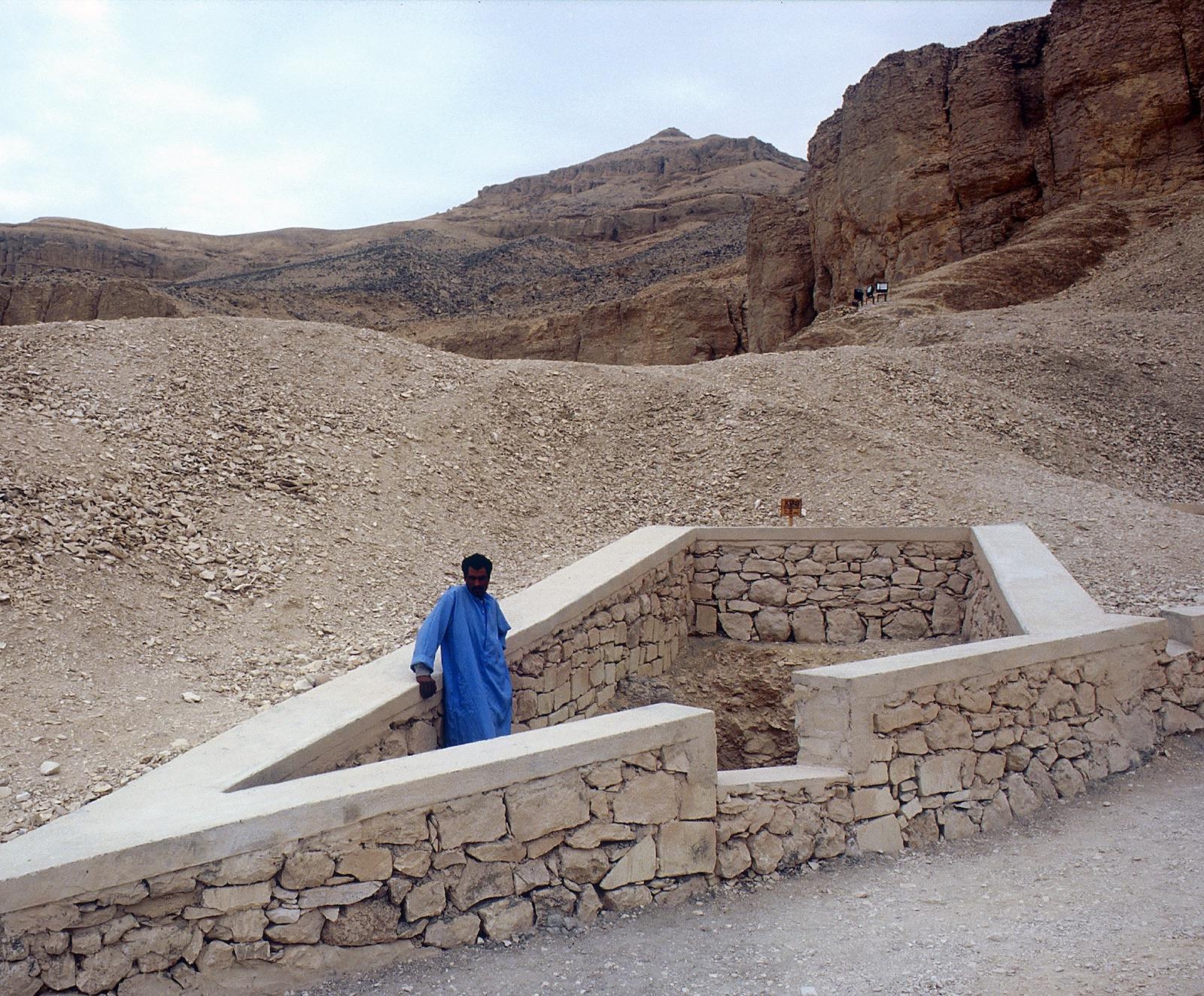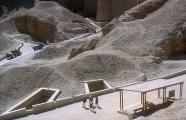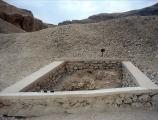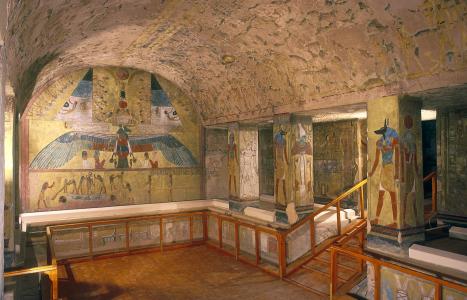KV 48
Amenemipet
Entryway A
See entire tombThe entrance to the tomb is a deep shaft.
Chamber B
See entire tombThe chamber is large and rectangular.
Gate B
See entire tombA rough wall had been built during antiquity to prevent further intrusion into the tomb.
About
About
KV 48 is located in the west branch off the southwest Wadi. The tomb consists of a deep shaft (A) and a single chamber (B). The tomb was found undecorated.
Site History
The tomb belonged to Amenemipet, also known as Pairy, brother of Sennefer and Vizier and Governor of the Town under Amenhetep II. The evidence for this includes several inscribed shabtis. The fact that his tomb is located in the vicinity of KV 35 indicates that Amenemipet enjoyed the favor of Amenhetep II. The tomb was robbed during antiquity. Amenemipet is also the owner of TT 29 in Shaykh Abd al Qurna.
Dating
This site was used during the following period(s):
Exploration
Conservation
Conservation History
The Theban Mapping Project built a small stone wall around the tomb entrance to protect it from flood waters.
Site Condition
The tomb is inaccessible.
Hieroglyphs
Amenemipet
 Amen is in Karnak
Amen is in Karnak
Imn-m-Ipt
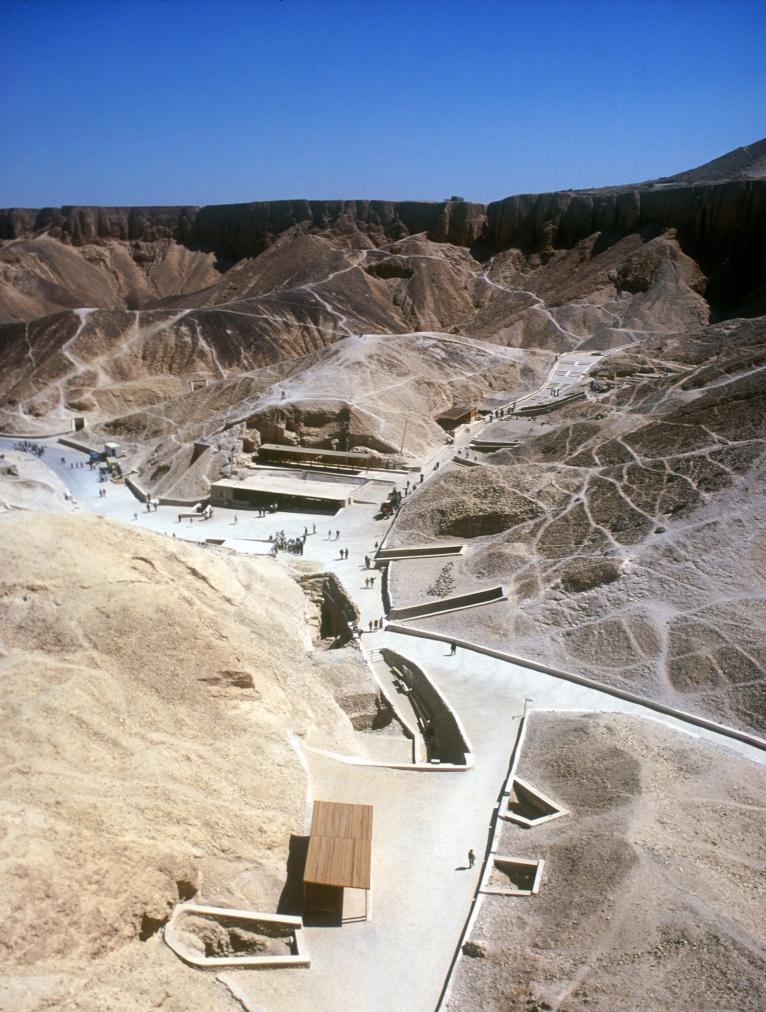
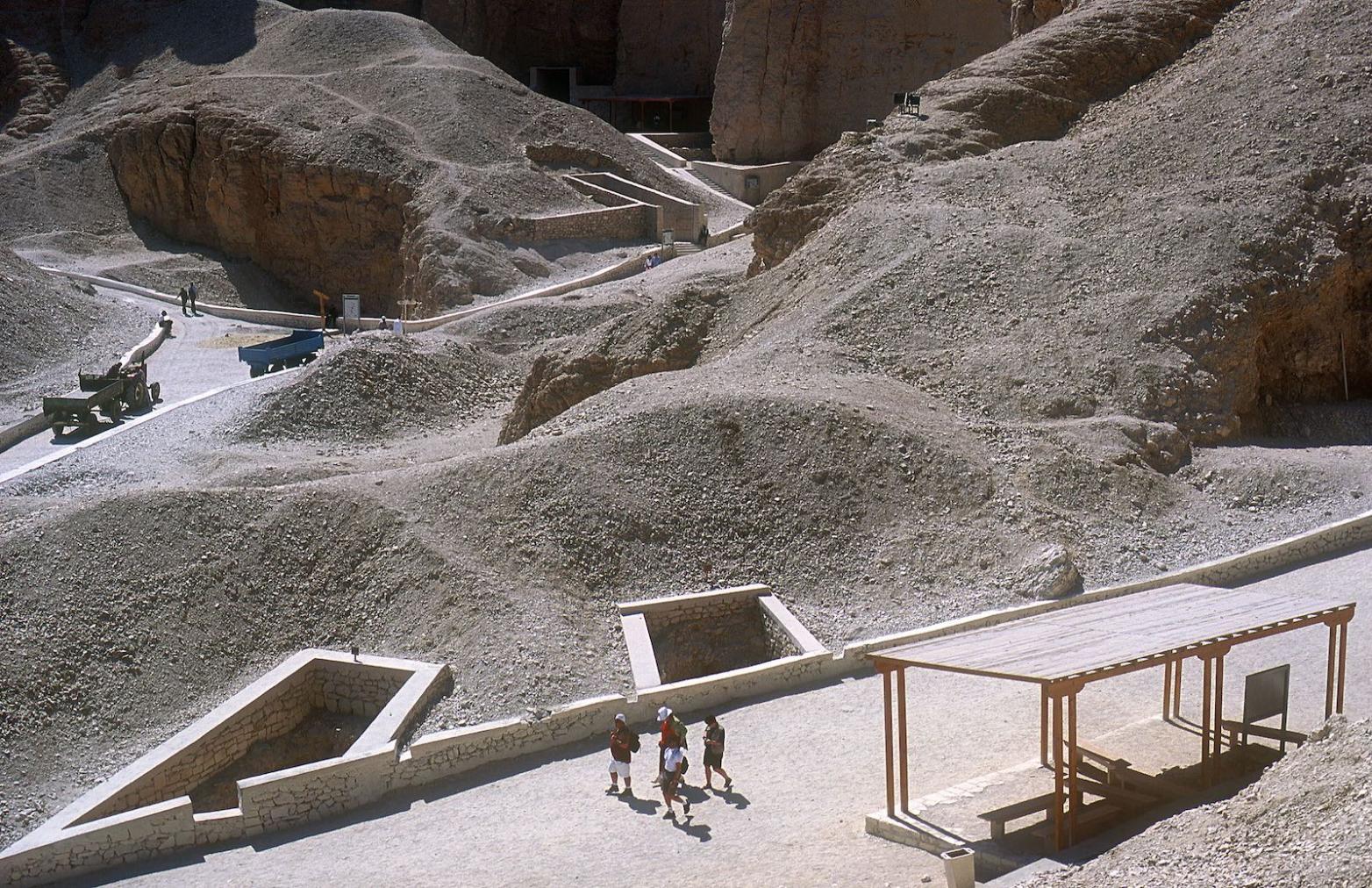
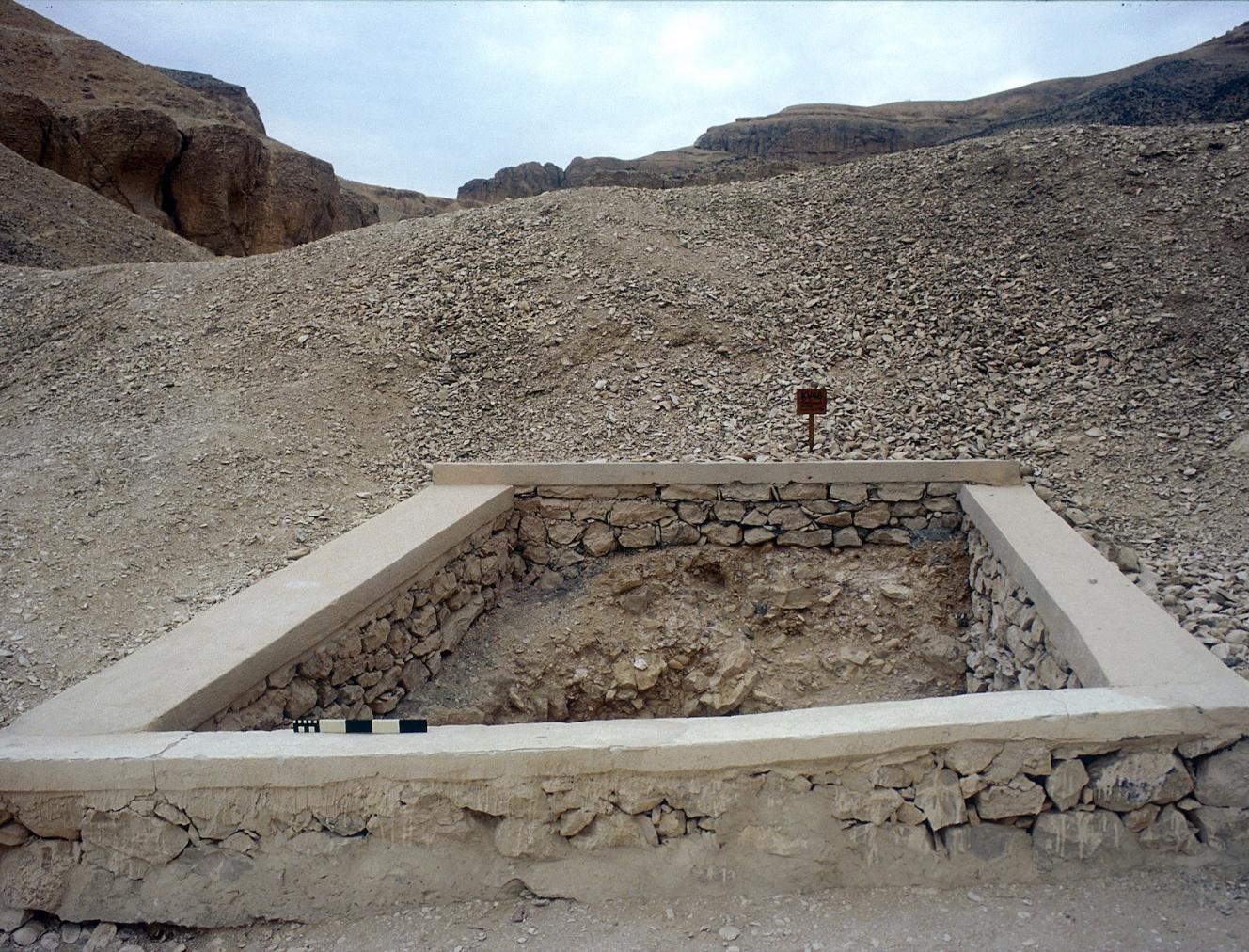
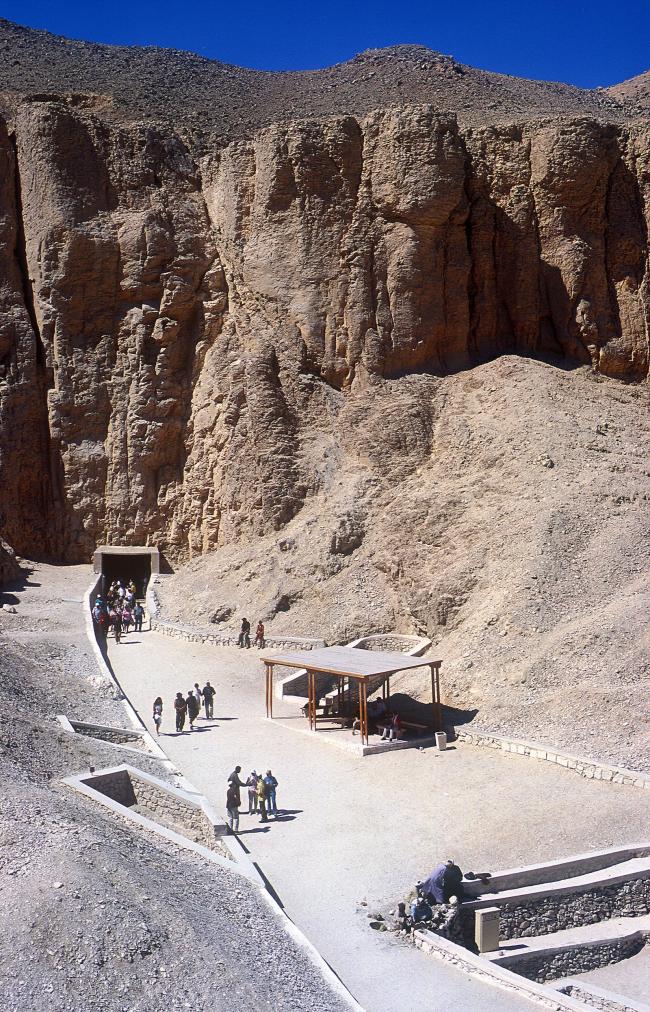
Articles
Anatomy of a Tomb: Ancient and Modern Designations for Chambers and Features
Bibliography
Aston, David, Barbara Aston and Donald P. Ryan. Pottery from Tombs in the Valley of the Kings, KV 21, 27, 28, 44, 45, and 60. Cahiers de la céramique égyptienne. Cairo, IFAO. 6 (2000): 11-38.
Davis, Theodore M., Gaston Maspero, Edward Ayrton, Georges Daressy and E.H. Jones. The Tomb of Siphtah (= Theodore M. Davis' Excavations, Biban el Moluk, 4). London, 1908.
Fekri, Magdi Mohammed. Une nouvelle enquête sur les tombes civiles et enonymes de la Vallée des Rois. In: Zahi Hawass, (ed.), Egyptology at the Dawn of the Twenty-First Century: Proceedings of the Eighth International Congress of Egyptologists, Cairo, 2000. Two vols. Cairo: American University in Cairo Press, 1003. Pp. 180-184.
Helck, Wolfgang. Königsgräbertal. Wolfgang Helck, Eberhart Otto and Wolfhart Westendorf (eds.). Lexikon der Ägyptologie. 7 vols. Wiesbaden, 1972-1992. 3: 522.
Porter, Bertha and Rosalind Moss. Topographical Bibliography of Ancient Egyptian Hieroglyphic Text, Reliefs, and Paintings. I, 2.The Theban Necropolis: Royal Tombs and Smaller Cemeteries. Oxford: Clarendon Press, 1964. Pp. 565.
Reeves, Carl Nicholas. Valley of the Kings: The Decline of a Royal Necropolis (= Studies in Egyptology). London: KPI, 1990. Pp. 140.
Thomas, Elizabeth. The Royal Necropoleis of Thebes. Princeton: privately printed, 1966. P. 161.
Weeks, Kent R. (ed.). Atlas of the Valley of the Kings (=Publications of the Theban Mapping Project. Cairo: American University in Cairo, 1). Cairo: American University in Cairo Press, 2000. Map sheet 62.
Weeks, Kent R. The Theban Mapping Project: Report of the 6th, 7th, and 8th Seasons. Berkeley: University of California, 1987.
